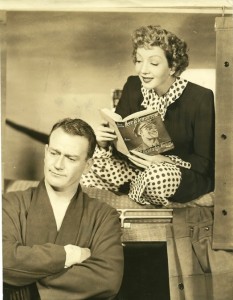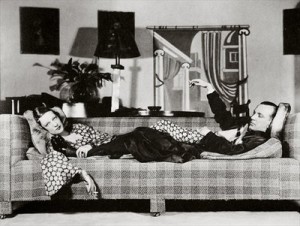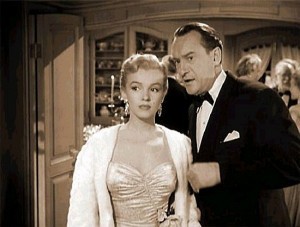 I got an e-mail yesterday afternoon from Patti Wolff, interim artistic director of the Wallis Annenberg Center for the Performing Arts in Beverly Hills, informing me that the entire run of Satchmo at the Waldorf, my first play, is now sold out. It’s a hit.
I got an e-mail yesterday afternoon from Patti Wolff, interim artistic director of the Wallis Annenberg Center for the Performing Arts in Beverly Hills, informing me that the entire run of Satchmo at the Waldorf, my first play, is now sold out. It’s a hit.
Not to be obvious, but this couldn’t possibly have happened without the amazing work of John Douglas Thompson and Gordon Edelstein, the star and director, and the production team that designed Satchmo in 2012, moved it off Broadway last year, and now have brought it to California for its West Coast premiere. Plays don’t play themselves—especially not this well.. Heartfelt thanks, too, to Patti and her wonder-working colleagues for believing in our show and getting it up and running at the Wallis. They’re all made of gold.
What next for Satchmo? A new production, directed by Charles Newell, begins performances at Chicago’s Court Theatre on January 7. Meanwhile, the staging now playing at the Wallis will move to San Francisco’s American Conservatory Theater on January 13. Two more runs of Satchmo, in Colorado Springs and West Palm Beach, will follow in due course, with further productions set for 2016-17.
After that? Well, we’ll see. But I’m more than happy just as is.

 I
I 

 Published in 1963, two years before his death, in an edition of 118 copies, “Gray Sea” is a choice example of Avery’s late, all-but-abstract style. Like so many of his later paintings, it’s a marine landscape, colored with extreme subtlety, in which Avery took full advantage of the enforced simplicity of the medium (color transfer lithography on zinc). Just as he did in such better-known paintings of the same period as
Published in 1963, two years before his death, in an edition of 118 copies, “Gray Sea” is a choice example of Avery’s late, all-but-abstract style. Like so many of his later paintings, it’s a marine landscape, colored with extreme subtlety, in which Avery took full advantage of the enforced simplicity of the medium (color transfer lithography on zinc). Just as he did in such better-known paintings of the same period as 
 Since I also wore thick glasses and was worse than hopeless at team sports, this was more than enough to brand me as different—way different—in the eyes of my fellow students. Most of them were perfectly nice about it, but a few accused me of being a “mama’s boy” and, worse yet, a “sissy.” To the first accusation I had no plausible defense, that being exactly what I was, but I couldn’t understand why anyone would call me a sissy, since I wasn’t girlish, just…different.
Since I also wore thick glasses and was worse than hopeless at team sports, this was more than enough to brand me as different—way different—in the eyes of my fellow students. Most of them were perfectly nice about it, but a few accused me of being a “mama’s boy” and, worse yet, a “sissy.” To the first accusation I had no plausible defense, that being exactly what I was, but I couldn’t understand why anyone would call me a sissy, since I wasn’t girlish, just…different. No doubt it says something significant about me that I’ve preferred the company of women, straight and gay alike, for as long as I can remember, both as romantic partners and as everyday companions. Be that as it may, I’ve never been able to shake off the strong sense of isolating strangeness that I acquired right around the time I discovered that I was the only kid on my block who could do an even halfway passable imitation of Noël Coward
No doubt it says something significant about me that I’ve preferred the company of women, straight and gay alike, for as long as I can remember, both as romantic partners and as everyday companions. Be that as it may, I’ve never been able to shake off the strong sense of isolating strangeness that I acquired right around the time I discovered that I was the only kid on my block who could do an even halfway passable imitation of Noël Coward  Nevertheless, that’s the kind of guy I’m, a straight-as-a-stick small-town boy who grew up to become a big-city drama critic, a profession whose best-known fictional representatives, Addison DeWitt and Waldo Lydecker, aren’t exactly butch—though both of them at least purported to be straight, convincingly in one case, less so in the other. And what of it? I’ve lived long enough to learn that human beings are vastly more complicated than I ever suspected in my youth, in ways not limited to their sexual preferences.
Nevertheless, that’s the kind of guy I’m, a straight-as-a-stick small-town boy who grew up to become a big-city drama critic, a profession whose best-known fictional representatives, Addison DeWitt and Waldo Lydecker, aren’t exactly butch—though both of them at least purported to be straight, convincingly in one case, less so in the other. And what of it? I’ve lived long enough to learn that human beings are vastly more complicated than I ever suspected in my youth, in ways not limited to their sexual preferences.